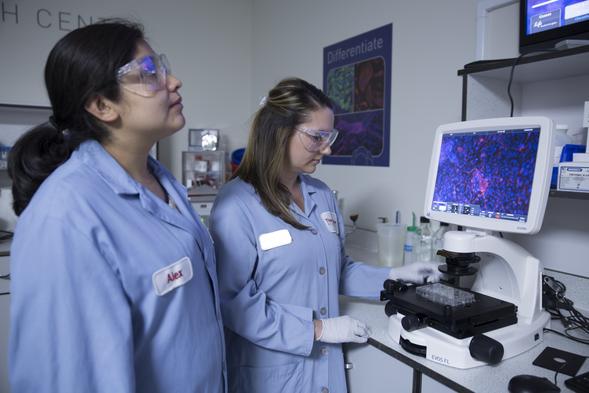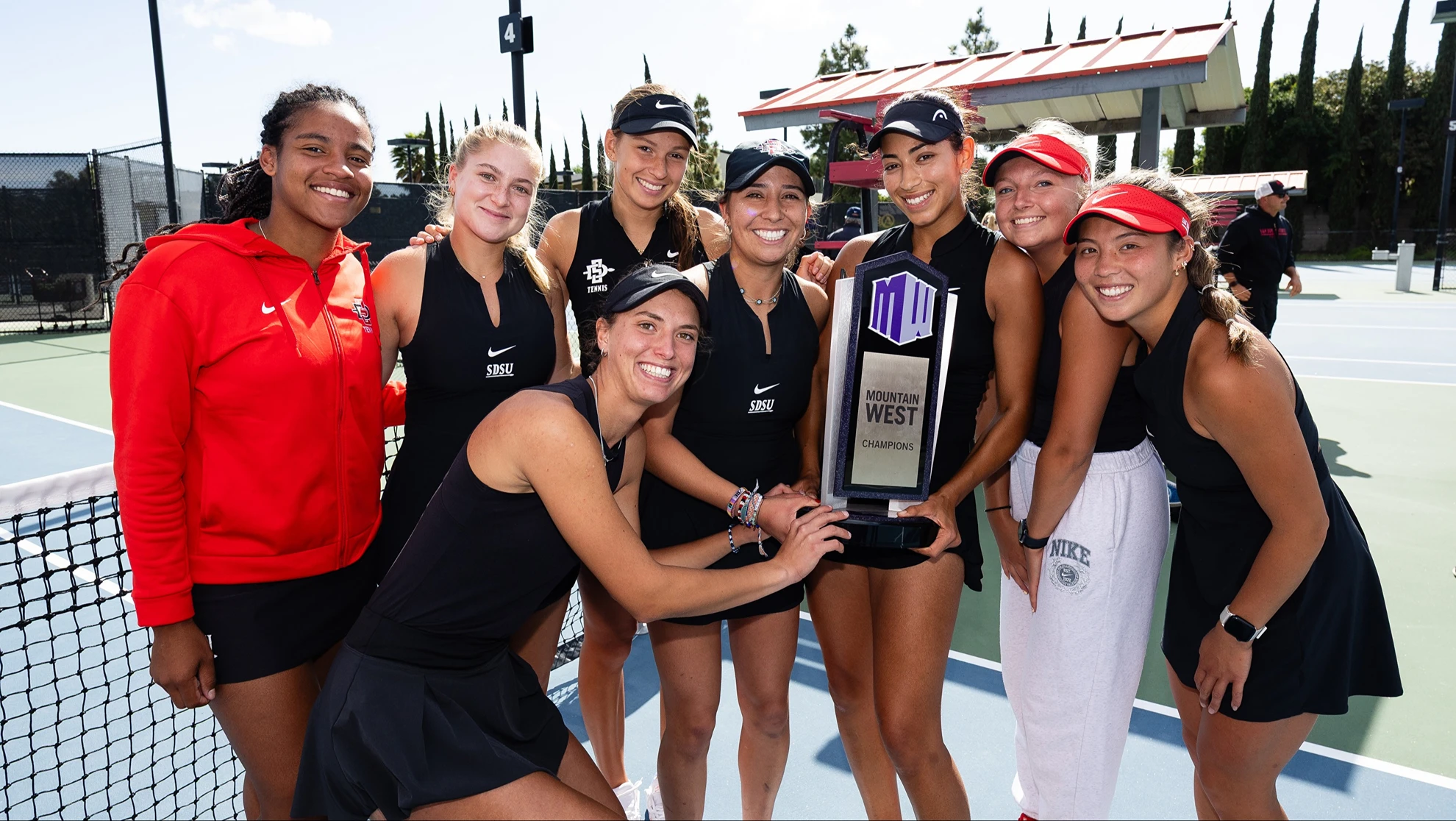Investing in Stem Cell Futures
California Institute of Regenerative Medicine invested $6M at SDSU and CSUSM to train the next generation of stem cell scientists.

“Thanks to this program, I can put all of my energy and focus into being a scientist.”
The California Institute for Regenerative Medicine (CIRM) announced in January that San Diego State University and California State University San Marcos will each receive $3,045,000 to continue the institutions’ Bridges to Stem Cell Research Internship Programs (BSCRIP). A total of $40.13 million was awarded by the CIRM Board for stem cell internship programs across 15 California State University campuses, including SDSU and CSUSM, for five more years.
BSCRIP places students in full 12-month internships with host laboratories throughout San Diego County to cultivate the next generation of young scientists and ensure that California remains at the forefront of stem cell discoveries aimed at helping patients with unmet needs. Participating students earn a stipend of $2,500 a month as well as their tuition (up to $7,000) paid by the grant. Participating labs also receive a small remuneration to offset any costs incurred.
“Stem cell-based treatment strategies represent the future of medicine for patients suffering from chronic disease and injury,” explained biologist Ralph Feuer, program director for the SDSU BSCRIP. “Continued progress in the development and administration of these new therapies not only require ongoing basic and translational research, but also a sustainable approach whereby the next generation of scientists and technicians build upon the initial success of previous scientific accomplishments.”
Field work
At SDSU and CSU San Marcos, 10 interns per year are selected to participate in the program. Academic coursework at their home institution is designed to teach BSCRIP participants about stem cells including research, ethics and regulatory affairs. Other activities are also designed to provide students with direct patient engagement and outreach activities engaging California’s diverse communities. In the field, the students gain extensive hands-on training through a comprehensive lab-training course in basic cell culture and maintenance of stem cells as well as a research internships at local host institutions investigating human stem cell therapies and disease models.
During the internship period, students attend research seminars, present their scientific progress at monthly colloquia to other students as well as participating host mentors and scientists, and present scientific posters at local and regional scientific meetings.
“The goal of the Bridges program is to prepare undergraduate and Master’s level students in California for a successful career in stem cell research,” said Randal Mills, president and CEO of CIRM. “That’s not just a matter of giving them money, but also of giving them good mentors who can help train and guide them, of giving them meaningful engagement with patients and patient advocates, so they have a clear vision of the impact the work they are doing can have on people’s lives.”
Career picture
Since 2009, San Diego State University has trained 62 students while Cal State San Marcos has trained 65, the majority of whom came from diverse backgrounds and are now working in biotech or academic research laboratories or attending professional programs in the field of regenerative medicine.
“Thanks to this program, I can put all of my energy and focus into being a scientist,” said Alex Mendoza is a first generation in college student at CSU San Marcos currently interning at Thermo Fisher Scientific’s Carlsbad site through BSCRIP. “The skill sets I’m learning at Thermo Fisher Scientific—from hands-on experiment planning, to learning how to minimize errors and learn from my mistakes—is giving me a complete picture of what a career in stem cell research will be like.”



